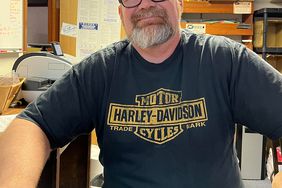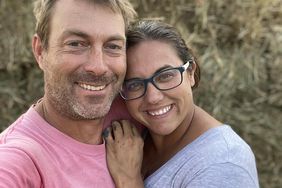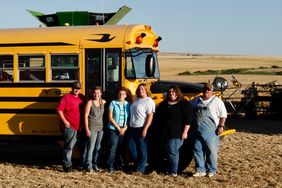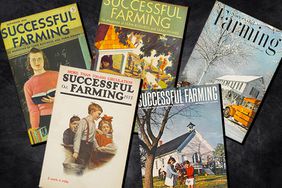:max_bytes(150000):strip_icc()/iStock-800468142-1-2000-9175ba8222054f04a9fb4ba2bff4f4da.jpg)
Let's face it, transitioning to a niche market or picking up more work is not a solution for every farmer facing hard times. Some will need to stop farming. While that may be hard, it can also be an opportunity.
Outside agriculture, career shifts are often seen as a way to advance, points out Extension educator Megan Roberts. "In other occupations, if we switch jobs, that's not seen in any way as a failure," she says.
- READ MORE: The value of creating a plan b
Here's a look at how to stop farming and the opportunities that come with the change. Ending a career in farming begins with making a decision.
Mental health practitioner Shauna Reitmeier explains, "In some situations, that decision is something you're choosing to do on your own without any external pressures, and in some situations, you have to do it in order to sustain. We know that this current environment we're in, many farmers dealing with commodity prices and weather situations are needing to decide, 'Do I liquidate? Do I need to sell half of my dairy cattle, or not?' "
Anxiety and worries about the unknown are totally normal, she says. To keep from getting overwhelmed, it is important to recognize what is in your control and what you can't control.
Keeping your values front and center as you make decisions may ease the heartache of difficult choices. Ask yourself, what are the two or three values that drive you to get up every day?
"Yes, farming is a way of life and we identify ourselves with farming, but it's really those strong values that get you up every morning to continue to farm. Those values don't change based on whether you're farming," Reitmeier says.
"It isn't the farm that makes the farmer – it's the love, hard work, and character," says Brenda Mack, who lives on a farm and works as a licensed independent clinical social worker.
After making the decision to end or pivot your farming career, don't expect to bounce back overnight. Some people experience real grief and loss over the change, and that's OK, says Reitmeier, who grew up on a farm. Be prepared for the following range of emotions as you make decisions, develop plans, and put them in place.
- "Normal" functioning
- Shock and denial: Avoidance, blame, fear, numbness
- Anger: Anxiety, embarrassment, irritation
"You might be having more fights with your spouse or get more irritable with the lenders you're having conversations with," Reitmeier says.
- Depression and detachment: Blahs, helplessness, lack of energy
- Dialogue and bargaining: Reaching out to others, desire to share one's story, struggle to find meaning for what happened
- Acceptance: Exploring options, a new plan in place
- Return to meaningful life: Empowerment, security, self-esteem, meaning
The stages of grief may not all come in this order. "One day you're angry, the next day you're feeling a little acceptance, another day you're depressed. You're all over the place," Reitmeier says.
Mack remembers watching her own parents process their decision to retire from farming. The transition was especially hard for her proud, third-generation row-crop farming father.
After retiring, her dad felt as though he didn't fit at the table of neighboring farmers discussing their problems at the local café. He struggled to find where he belonged. Conversations with his wife, other farmers, his priest, and a mental health therapist all helped him find a new, broader identity for himself and a renewed sense of purpose.
"I was really proud of my dad for having the understanding and ability, and not feeling shame in reaching out to a formal provider because that can be really terrifying. It can be hard to go see a mental health provider, but it's what he needed at that point in time," Mack explains.
Mack acknowledges mental health resources aren't always easy to find in rural areas.
In addition to seeking professional mental health services, there are other strategies to cope with the massive changes that come with the end of a farming career.
Keep in mind who you are in addition to your role as a farmer. Farmers wear many hats: parent, child, sibling, community leader, church member, history enthusiast, 4-H leader, to name a few.
Building self-awareness can help you discover you are more than what you do. If you're struggling to get out of the grief and loss process, Reitmeier suggests knowing your body cues. Sensing when they become different can be helpful. Also, keep tabs on your relational, cognitive, and physical health
Learn More
Cultivating Resiliency resources are presented by University of Minnesota – Women in Ag Network and Upper Midwest Agricultural Safety and Health Center.
:max_bytes(150000):strip_icc()/NatalinaBausch-6-06b14ffcaa32491e802c91c09e7fc867.jpg)









